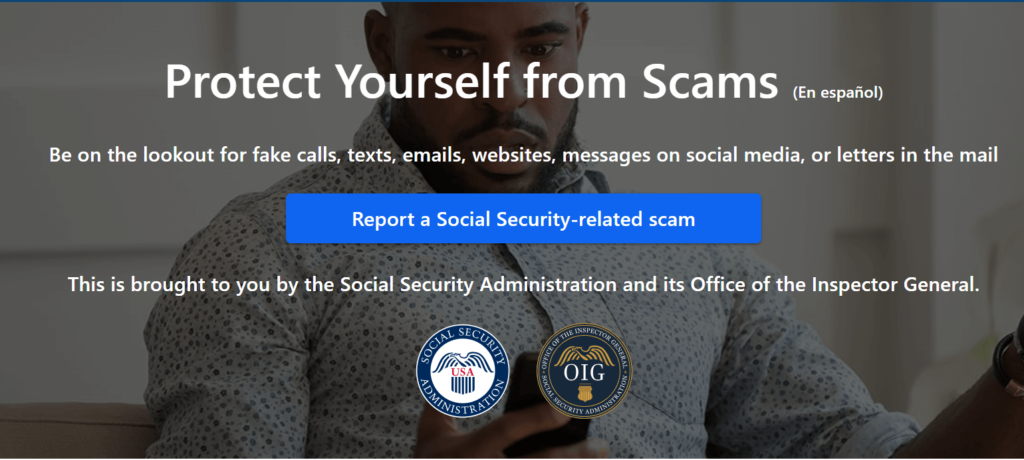Social Security Scam – 04 Signs You Must Know and protect your Personal Identity: The newest episode of SSA Talks features Kate Kleinert, a widow living near Philadelphia. As a warning to others, she shares her story of losing the last of her life savings – $39,000 – in a romance scam.
The episode includes advice from Rebecca Rose, a senior public affairs specialist with Social Security’s Office of the Inspector General, OIG.
Typical scammers use the 4 Ps:
- They pretend to be from a trusted agency, like Social Security.
- They present a problem or prize.
- They pressure you to act immediately.
- They request payment in a specific way, such as gift cards, wire transfers, or bitcoin.
Rebecca also offers tips on how you can protect your personal information. The segment concludes with how to report Social Security-related scams to OIG.
How to avoid a scam:
• Remain calm. Talk to someone you trust.
• Hang up or ignore the message. DO NOT click on links or attachments.
• Protect your money. Criminals will insist that you pay in a hard-to-trace manner, such as with a gift card, prepaid debit card, cryptocurrency, wire transfer, money transfer, or by mailing cash.

• Protect your personal information. Be skeptical of a contact you didn’t initiate.
• Spread the word. Share your knowledge of Social Security-related scams. Post on social media using the hashtag #SlamtheScam to share your experience and warn others. Visit ssa.gov/scam for more information. Please also share with your friends and family.
What to do if you suspect your Social Security number has been stolen
Identity thieves can use your SSN and other personal information to apply for loans and credit cards and open cellphone and utility accounts in your name. If you believe your information has been stolen and you may be a victim of identity theft, you can:
- Visit IdentityTheft.gov to make a report and get a recovery plan. IdentityTheft.gov is a one-stop resource managed by the Federal Trade Commission, the nation’s consumer protection agency. Or you can call 1-877-IDTHEFT (1-877-438-4338).
- File a police report and keep a copy for your records in case problems arise in the future.
- File an online report with the Internet Crime Complaint Center (IC3) at ic3.gov. Its mission is to receive, develop, and refer cybercrime complaints to law enforcement and regulatory agencies.
- Notify 1 of the 3 major credit bureaus and consider adding a credit freeze, fraud alert, or both to your credit report. The company you call is required to contact the others.
- Equifax at 1-800-525-6285.
- Experian at 1-888-397-3742.
- TransUnion at 1-800-680-7289.
- Regularly check your credit report for anything unusual. Free credit reports are available online at AnnualCreditReport.com.
- Contact the IRS to prevent someone else from using your Social Security number to file a tax return to receive your refund. Visit Identity Theft Central or call 1-800-908-4490.
Listen to Episode 5 on our SSA Talks page, where you’ll find a transcript and links to related materials. Don’t forget to subscribe to receive alerts about future episodes.
Please share Kate Kleinert’s story with your friends, family members, and others who may need it.















